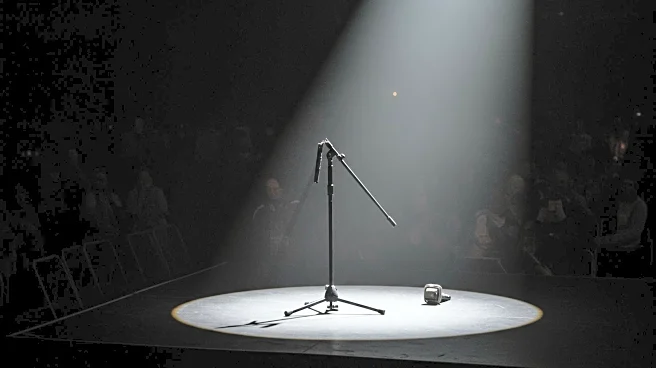What is the story about?
What's Happening?
Ashlee Simpson-Ross recently discussed the intense public backlash she faced following her lip-sync mishap on Saturday Night Live in 2004. During an appearance on the podcast Pod Meets World, Simpson-Ross shared her experiences with hosts Rider Strong, Danielle Fishel, and Will Friedle. She recounted how the incident, where her song 'Pieces of Me' played before she raised the microphone, led to significant criticism and bullying. Simpson-Ross explained that the scrutiny was overwhelming at the time, but she believes the reaction might be different if it occurred today due to changes in how celebrity mistakes are perceived. Despite the negative impact on her mental health, she emphasized the support from her fans and her determination to continue performing.
Why It's Important?
The discussion highlights the evolving nature of public reactions to celebrity missteps, particularly in the context of social media and digital communication. Simpson-Ross's experience underscores the intense pressure and scrutiny faced by public figures, especially young artists, and the potential mental health implications. The incident serves as a reminder of the harsh realities of fame and the importance of resilience and support systems. It also reflects broader societal changes in how mistakes are viewed and the fleeting nature of online criticism, which can impact public figures differently today compared to the past.
What's Next?
Simpson-Ross's reflections may prompt further conversations about the impact of public scrutiny on mental health and the need for more compassionate responses to celebrity errors. As public perceptions continue to evolve, there may be increased advocacy for mental health support for artists and public figures. Additionally, her story could inspire other celebrities to share their experiences and contribute to a broader dialogue on resilience and coping strategies in the face of public criticism.
Beyond the Headlines
The incident and its aftermath highlight ethical considerations regarding media coverage and public treatment of celebrities. It raises questions about the responsibility of media outlets and audiences in shaping narratives and the potential long-term effects on individuals' well-being. Simpson-Ross's experience may encourage a reevaluation of how society engages with celebrity culture and the importance of empathy and understanding in public discourse.















